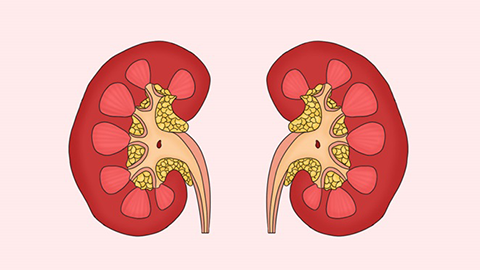How is adrenal gland tumor treated?
Generally, adrenal tumors may be caused by factors such as familial genetic predisposition, chronic mental stress, adrenal hyperplasia, primary aldosteronism, and pheochromocytoma. It is recommended to seek timely medical consultation, identify the exact cause, and improve the condition under a doctor's guidance through general treatment, medication, surgical treatment, and other approaches. Detailed explanations are as follows:

1. Familial genetic predisposition: Some adrenal tumors are genetically inherited. The presence of pathogenic genes within the family can easily lead to abnormal proliferation of adrenal cells. Regular adrenal ultrasound and hormone level testing once a year are recommended for early detection and early intervention to prevent further tumor development.
2. Chronic mental stress: Long-term stress causes hormonal imbalances such as excessive cortisol secretion, continuously stimulating adrenal tissues and increasing the risk of tumor formation. Daily stress relief methods such as jogging and meditation should be adopted, along with maintaining a regular sleep schedule, avoiding staying up late, and minimizing hormone fluctuations.
3. Adrenal hyperplasia: Benign hyperplasia of adrenal tissue may develop into tumor-like lesions over time, often accompanied by abnormal hormone secretion. Patients should follow medical advice to use medications such as spironolactone tablets, aminoglutethimide tablets, and mitotane tablets to regulate hormone secretion. If hyperplasia is significant, laparoscopic partial adrenalectomy can be performed to remove the hyperplastic tissue and restore adrenal function.
4. Primary aldosteronism: Excessive aldosterone secretion from the adrenal cortex stimulates abnormal tissue proliferation leading to tumor formation, often accompanied by hypertension and hypokalemia. Patients should follow medical advice to use medications such as spironolactone tablets, eplerenone tablets, and triamterene tablets to regulate aldosterone levels. If adenoma is present, laparoscopic adrenalectomy can be performed to remove the tumor and alleviate symptoms.
5. Pheochromocytoma: Abnormal proliferation of chromaffin cells in the adrenal medulla forms a tumor, which secretes excessive catecholamines, causing sudden increases in blood pressure. Patients should follow medical advice to use medications such as phenoxybenzamine tablets, prazosin hydrochloride tablets, and propranolol tablets to control blood pressure. Once the condition stabilizes, laparoscopic resection of the pheochromocytoma can be performed to remove the tumor and prevent complications caused by excessive hormone secretion.
In daily life, maintain a light diet, reduce intake of high-salt and high-fat foods, and consume more fresh vegetables and fruits. Avoid strenuous exercise, maintain emotional stability, and follow medical instructions for regular follow-up assessments of adrenal function and tumor size to maintain overall health stability.




